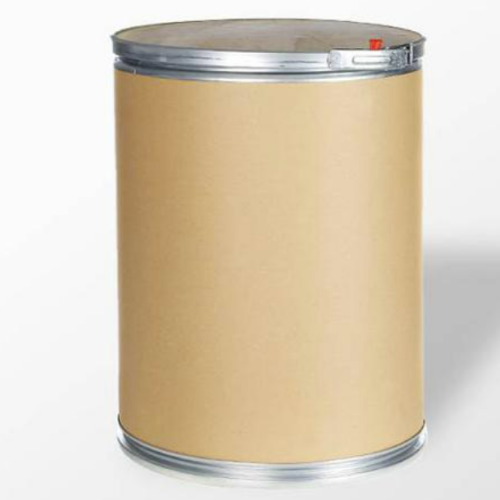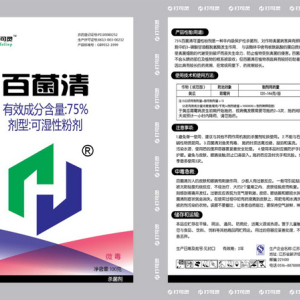Chlorothalonil 75% WP
Product Description:
Product performance (use):
Chlorothalonil can bind to the proteins of cysteine in glyceraldehyde-3-phosphate dehydrogenase in fungal cells and destroy the metabolism of cells to lose their vitality. Its main role is to prevent fungal infection without endo - sorbent conductance, but it has good adhesiveness on the plant surface, is less susceptible to rain flushing, and has a long duration of drug efficacy.
Matters needing attention:
1. This product is used with a safe interval of 10 days on tea trees, rice, leafy vegetables, 42 days on beans, wheat, 21 days on citrus, grapes, 14 days on melons, 23 days on tomato, 10 days on cucumber, 27 days on peanut, 25 days on pear trees and 20 days on apple trees; The maximum number of applications per crop cycle was: four on peanut, apple and grape, six on pear tree, three on early rice and five on late rice; 3 times on cucumber, 6 times on tomato and 3 times on citrus tree.
2. When dispensing, dispensing personnel are required to wear gummy gloves, masks, must weigh the drug powder at the prescribed dose, must not increase the amount at any time, and must strictly refrain from using hand stirring.
3. It cannot be mixed with substances such as stone sulfur agents, Bordeaux fluid or pesticides which are alkaline.
4. Medicines can occur when high concentrations of pear, persimmon, peach, plum and apple trees are used; Used in combination with fenitrothion, peach trees are prone to drug damage; When mixed with Acanthopanax pteronyssinus, tricyclic tin and so on, tea trees can develop drug damage.
5. After the application is finished, the sprayer should be cleaned up in a timely manner, and then the body parts contaminated with the drug solution should be immediately rinsed with clean water. Sewage that washes instruments should be selected for proper disposal in safe locations, with inadvertent spills, to prevent contamination of drinking water sources and fish ponds.
6. Applicators should pay attention to personal protection and wear protective clothing, shoes, masks, gloves, etc. Smoking, drinking water, eating and not able to rub mouth, face, eyes by hand were prohibited at the time of operation. After work, wash your hands and face with soap, and Seto and take a shower. Work clothes contaminated with pesticides were changed in time and applicators were allowed to spray for no more than 6 h per day. For those with skin disorders and others that have not recovered, and for lactating, pregnant women to discontinue sprays.
7. It is toxic to fish, uses away from aquaculture areas, and is forbidden to wash applicator appliances in water bodies such as river ponds; Avoid contamination of water sources with medicines.
8. Alternate use of fungicides that differ from other mechanisms of action is recommended to retard resistance emergence.
9. The packaging box, bottle and bag which has passed through the pesticide is to be centrally and properly disposed of, not to do his use, nor to discard at will.










